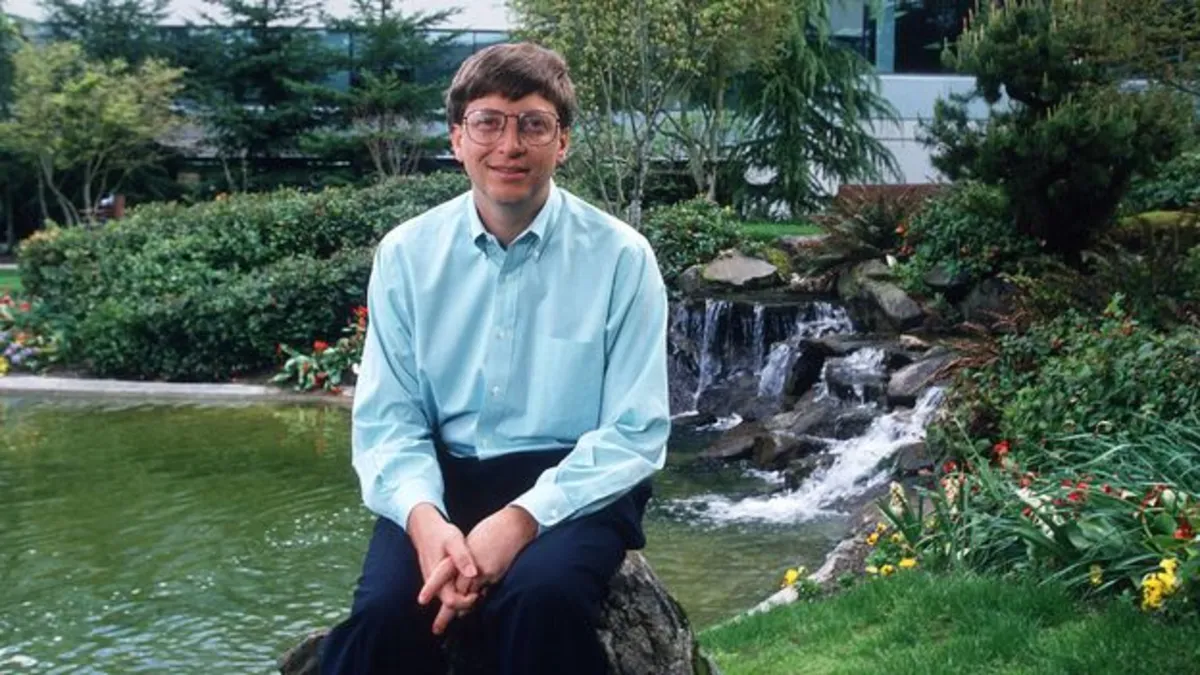
Two hours ago, a retrospective on the groundbreaking journey of Microsoft, co-founded by Bill Gates and Paul Allen, marked its 50th anniversary. This computing giant has played a pivotal role in shaping the modern digital landscape. In a notable 1993 interview with the BBC, Gates discussed the significant online innovations that would define the 21st century, revealing his foresight into the technological revolution.
When the BBC first aired its interview with Microsoft co-founder Bill Gates in June 1993, the internet was in its infancy, with only about 130 websites in existence. The BBC's esteemed science program Horizon explored this nascent Electronic Frontier, highlighting how information was beginning to redefine our world, its geography, and its economy. Gates boldly declared, "This is the information age, and the computer is the tool of the information age, and software is what will determine how easily we can access all of that information."
During this period, viewers could send a cheque for £2 to obtain a transcript of the program by post. The burgeoning computer industry was growing faster than any other in history, but the future profits relied on developing portable and user-friendly technology. The program raised a pivotal question: "Do we need endless information, or do they just need to sell it to us?"
In those early days, Gates and Allen set an ambitious goal: placing a computer on every desk and in every home, all running Microsoft products. Their friendship blossomed at a private school in Seattle, where their shared passion for computers brought them together. Both dropped out of college to establish Microsoft, aptly named for its focus on microcomputer software.
Microsoft's major breakthrough came in 1980 when it partnered with IBM to develop an operating system for its personal computer. This strategic decision allowed Microsoft to license the operating system to other manufacturers, leading to the rise of IBM-compatible personal computers reliant on its MS-DOS product. The financial success that followed has continued unabated to this day.
While Gates was the serious visionary, Allen brought a more creative flair to Microsoft. He remained with the company until 1983, when he stepped back following a diagnosis of blood cancer. After recovering, he became a successful venture capitalist, maintaining his stake in Microsoft and appearing on the world's rich lists until his passing in 2018 at age 65. Allen utilized his wealth to invest in his passions, owning teams like the Portland Trail Blazers and the Seattle Seahawks, the latter of which won the Super Bowl in 2013.
Allen's departure from Microsoft allowed him to pursue other interests, such as music, where he was often compared to legends like Jimi Hendrix. He founded the Museum of Pop Culture in Seattle, designed by renowned architect Frank Gehry. However, Allen left Microsoft before iconic products like Windows, Excel, and Word became household names.
As the 1990s progressed, Gates' vision for networked computers began to materialize, propelling sales and profits to new heights. However, the dream of placing a computer running Microsoft software in every home was only partly realized. While word processing and spreadsheets proved lucrative, the company sought new avenues for growth, particularly in bringing multimedia into homes and transforming personal computers into communication devices.
In a candid acknowledgment during the 1993 interview, Gates recognized the challenges of penetrating the home market but expressed confidence in Microsoft's eventual success. He predicted that within 15 to 20 years, every home would have a computer, albeit one that would not resemble today's devices. His optimism echoed amidst cultural commentary, such as Bruce Springsteen's critique of television saturation with "57 Channels (And Nothin' On)."
Despite the skepticism, Microsoft's Nathan Myhrvold envisioned a future with up to 1,000 television channels, proposing systems reminiscent of today's streaming services. His futuristic ideas included a comprehensive online interactive guide capable of learning user preferences and organizing content.
However, the 1993 program also raised pressing questions about personal privacy in an increasingly digital world. Denise Caruso, editor of Digital Media, warned that the convenience of ordering products through interactive TVs would expose consumers to invasive data collection. She cautioned, "Whoever is on the other end of that network knows what you're watching on television, can get your credit card number, can know lots of things about you that you don't want them to know."
Caruso's insights resonate with current debates surrounding Generative AI and copyright issues. She articulated concerns around commodifying information and the blurred lines between original ideas and derivative works. While information is invaluable, protecting its integrity poses significant challenges.
Although the World Wide Web did not feature prominently in the 1993 program, it served as many viewers' introduction to email. Microsoft’s vice-president, Mike Murray, described email as creating an "electronic village" that transcended geographical boundaries. By the end of 1993, the number of websites had surged to an estimated 623, doubling every three months.
Despite criticism of its slow response to the web's growth, Gates recognized its potential in a memo titled "The Internet Tidal Wave" in May 1995. He deemed it the most significant development since the IBM PC's launch in 1981. Shortly thereafter, Microsoft launched its web portal, MSN, alongside the highly anticipated Windows 95, which controversially bundled the new Internet Explorer browser.
As Microsoft continues to innovate and expand, the legacy of Gates and Allen serves as a reminder of the transformative power of technology and the potential it holds for future generations.